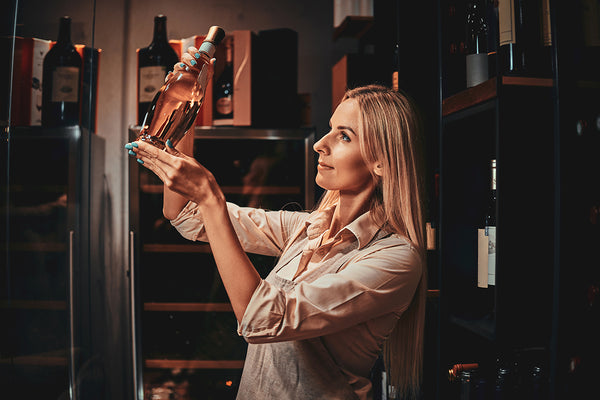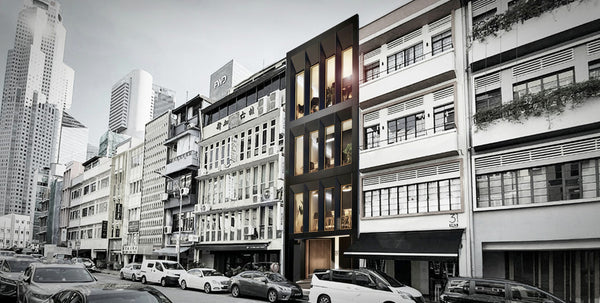
How Long Can You Store Wine?
How Long Can You Store Wine? Understanding the Lifespan of Your Favorite Bottles
Wine, much like a fine piece of art, has the ability to evolve over time. For wine enthusiasts, the question of how long to store a bottle before opening it is one that carries great significance. The right timing can elevate a wine to its peak expression, while waiting too long can lead to disappointment. Understanding how long you can store wine requires knowledge of the factors that influence its aging process and how to best preserve it.
The Role of Wine Type in Aging
Not all wines are meant to age. In fact, the majority of wines produced today are intended to be consumed within a few years of bottling. Generally speaking, wines can be categorized into those that are meant for short-term consumption and those that benefit from aging.
-
Short-Term Wines: Most white wines, rosés, and lighter red wines are best enjoyed within a few years of release. These wines are typically more delicate, with fruit-forward profiles that are best appreciated when fresh. Examples include Sauvignon Blanc, Pinot Grigio, and Beaujolais.
-
Aging Wines: Some wines, particularly those with higher tannin levels, acidity, and sugar, are well-suited for aging. These include full-bodied reds like Cabernet Sauvignon, Bordeaux, and Barolo, as well as certain whites such as high-quality Chardonnay and Riesling. Fortified wines like Port and Sherry also have excellent aging potential due to their higher alcohol content.

Ideal Storage Conditions
Even wines designed for aging need to be stored under the right conditions to reach their full potential. The key factors to consider are temperature, humidity, light exposure, and bottle position.
-
Temperature: Wine should be stored at a consistent temperature, ideally between 50-55°F (10-13°C). Fluctuations in temperature can cause the wine to expand and contract, potentially leading to leakage or premature aging. If you’re serious about preserving your wine collection, investing in a wine fridge is a good idea. These fridges are designed to maintain the perfect conditions for aging wine, offering better control over temperature than a standard refrigerator.
-
Humidity: A relative humidity of around 70% is ideal for wine storage. Too little humidity can dry out the cork, allowing air to seep into the bottle, while too much humidity can encourage mold growth.
-
Light Exposure: Wine should be kept in a dark environment, as UV rays from sunlight or fluorescent lights can degrade the wine and cause it to spoil.
-
Bottle Position: Storing wine bottles on their sides helps keep the cork moist, preventing it from drying out and shrinking. This is particularly important for wines sealed with natural corks.
How Long Can You Store Different Types of Wine?
Now that we’ve covered the basics of storage, let's take a closer look at how long you can store different types of wine.
-
Sparkling Wines: Generally best consumed within 1-3 years of purchase. Non-vintage Champagne and other sparkling wines don't benefit much from aging, though some vintage Champagnes can develop interesting characteristics over a longer period (up to 10 years).
-
White Wines: Most white wines, such as Sauvignon Blanc and Pinot Grigio, are best enjoyed within 1-2 years. However, certain whites like Chardonnay and Riesling can age for 5-10 years or more, depending on the quality and style.
-
Rosé Wines: These wines are typically at their best when consumed within 1-2 years of bottling. Rosé wines are prized for their freshness and bright fruit flavors, which can diminish over time.
-
Red Wines: The aging potential of red wine varies widely. Light reds like Pinot Noir are generally best within 2-5 years, while full-bodied reds like Cabernet Sauvignon, Bordeaux, and Barolo can age for 10-20 years or more under the right conditions.
-
Fortified Wines: Fortified wines like Port, Sherry, and Madeira are known for their exceptional aging potential. Depending on the style, these wines can be stored for decades, with some even lasting a century or more.

Signs That a Wine Has Aged Too Long
Even with ideal storage conditions, wine can eventually reach the end of its optimal drinking window. Here are some signs that a wine may have aged too long:
-
Loss of Color: Red wines may turn brown, while white wines can take on a darker, golden hue.
-
Off Aromas: Wine that has aged too long may develop unpleasant odors, such as mustiness or vinegar-like scents.
-
Flat Taste: The wine may lose its vibrant fruit flavors and become dull or overly acidic.
Conclusion: To Age or Not to Age?
The decision of whether to age a wine or drink it now ultimately comes down to personal preference and the characteristics of the wine itself. If you're unsure about how long to store a particular bottle, consider seeking advice from a trusted wine merchant or doing some research on the specific vintage and producer.
Remember, wine is meant to be enjoyed. Whether you prefer the youthful exuberance of a fresh wine or the complex depth of an aged vintage, the most important thing is to savor each sip.
For those looking to explore a variety of wines, from young and vibrant to those with aging potential, feel free to visit our website. We offer a curated selection that caters to every palate and occasion.



